Sustainable Suppliers: why your coffee supply chain matters
We speak to Mecca’s founder Paul Geshos about why sustainable practices are essential if we want to keep enjoying coffee the way we do today.
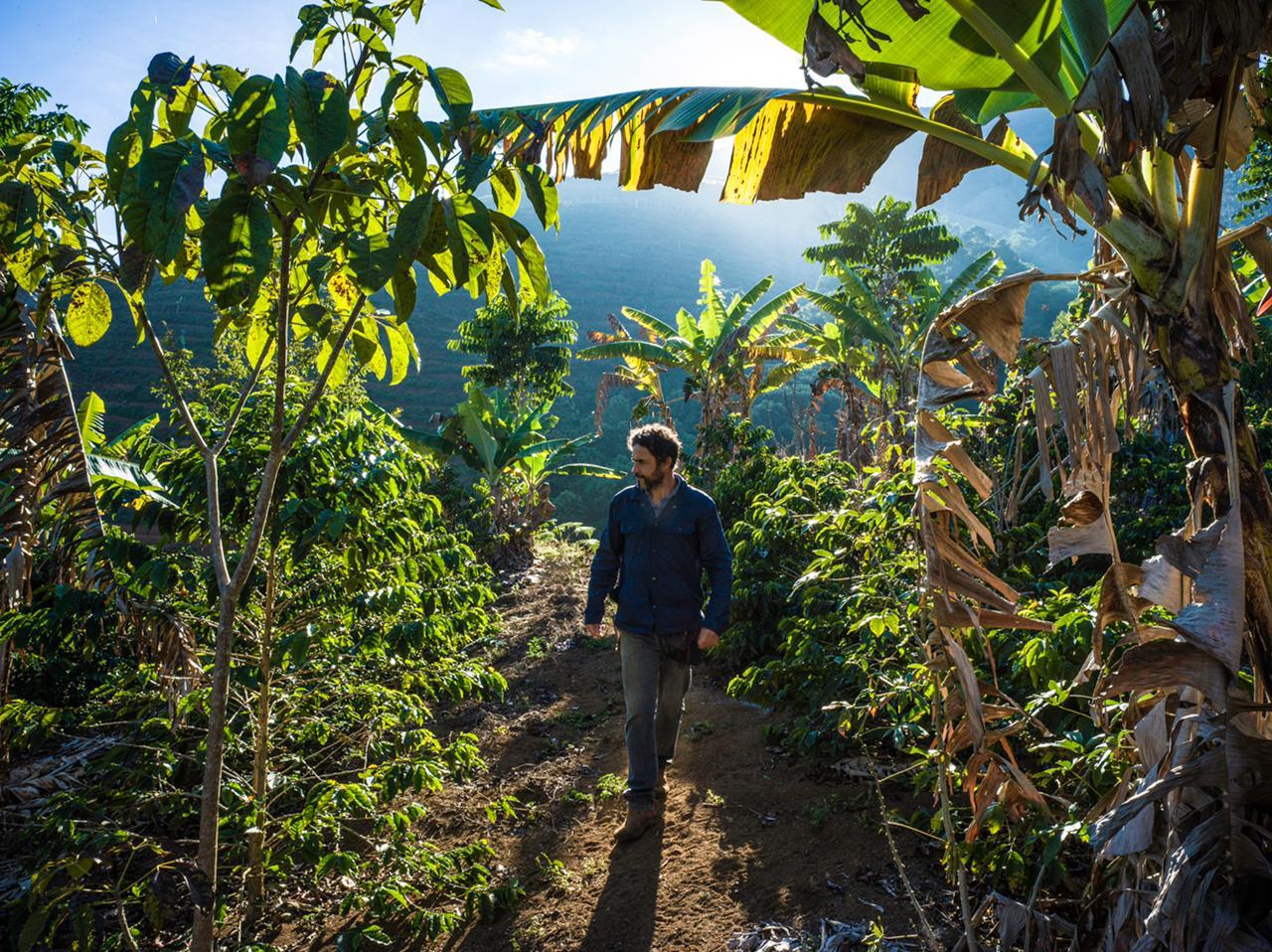
Just like your morning brew, Mecca’s roasting warehouse in Alexandria has a gentle, uplifting buzz. Bright light filters through the floor to ceiling windows as coffee drinkers chat with friends or tap away on their laptops.
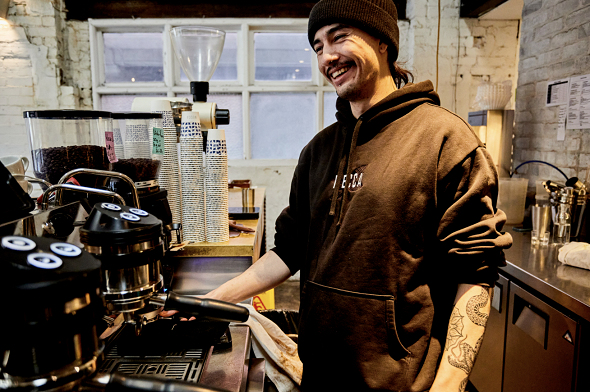
Behind the counter where baristas serve lattes and cold brews is the roastery, where bags of coffee beans sit on shelves surrounding a large, complex-looking metal barrel.
It’s easy to assume that it’s here where the magic happens. But Mecca’s Founder, Paul Geshos, explains that it all starts at the beginning of the supply chain - something he started exploring over twenty years ago.
“At the time, there was no forum in Australia to learn skills or increase knowledge around coffee. So I started travelling and going to trade shows and meeting up with other roasters around the world. I had a fortuitous trip one year where I met the general manager of Stumptown [a roaster in Portland, Oregon who pioneered the Direct Trade model of sourcing green coffee].”
Paul was taken through the entire backend of Stumptown’s operations, from green bean buying to roasting. “They had a strong connection to their supply chain, from the curation of the coffee producer to the quality of the green coffee they were buying. Once you learn something like that, there’s no way of going back.”
With this connection to the very beginning of the coffee chain, Paul saw there was an “almost infinite” spectrum of opportunity where you could explore flavour through varietal altitude, micro region, and growing techniques. “Back then though, there were only a few big brokers of coffee in Australia and this type of sourcing was way out of their sphere of knowledge.”
From his experience running cafes, Paul knew there was a thirst for this deeper, more nuanced approach to coffee. He started to meet a range of farmers and producers who were “practicing regenerative farming, closed systems, and optimising soil health in a very natural way.” He realised that all these elements had a deep impact on the final product.
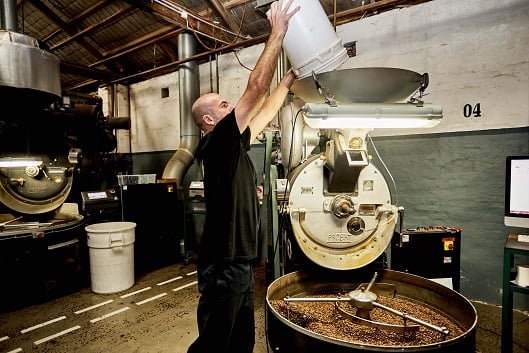
He also saw that to maximise taste, flavour and quality, there had to be an element of control over the entire process, from sourcing green coffee beans to roasting, and finally to brewing. “Coffee producers are not like a winemaker in that they produce a finished product. You can have great beans but you can roast them too light and then they become sour. Or you can go the other way and they become too bitter.
At this point, Paul bought an old German roaster and shipped it back to Australia - but he had no place to store it. “We ended up opening up King Street in 2005 [Mecca’s first retail venue] but it took me another year after opening that to actually find a venue for the roaster.”
A site was finally found for the coffee roaster, and during that time Paul made his first visit to El Salvador and make his first purchase of coffee direct from a farm, and really ‘getting the roaster dialed in.”
“That was the real birth of when we first started roasting coffee, and this was when he honed in on curating our producers.”

In 2007, Mecca opened another site at Circular Quay, where they roasted the beans to sell to customers in the cafe. “Not as many people were making coffee at home. People generally went out for coffee. But what we found was quite a few of our core staff would leave and then open up their own venues, and then we would supply the beans to them. That's when wholesale was born. And for the last 10-12 years, we’ve been growing that part of the business.”
Mecca beans are sought out by venues who are coffee focused, or at the very least, who want good quality coffee for their patrons. “Then there’s the social responsibility part that a lot of customers identify with as well - because there’s a lot of dodgy stuff going on in coffee.”
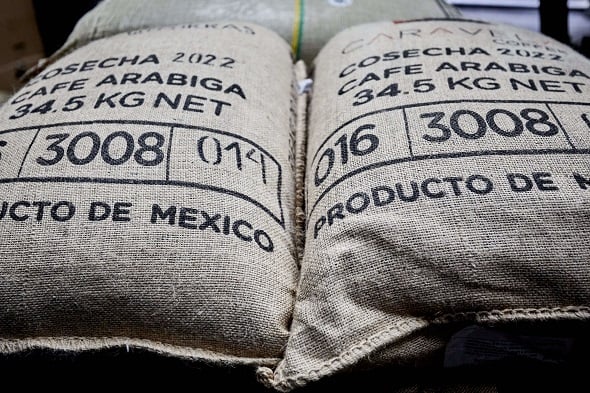
The dark side of coffee
“Like all commodities,” says Paul, “there’s a bit of exploitation to some degree - markets are always pushing coffee prices low.”
And even though at the moment we’re complaining about the rising prices of coffee, often coffee producers are not even meeting the cost of production.”
What this means is that many producers around the world - especially in Brazil, which produces 30-40% of the world’s coffee - use heavy agricultural practices, where the objective is to maximise yield. “Brazil is the land of monoculture, and farmers over fertilise. That might be good for a few proper harvests, but what I’ve seen, particularly in Brazil, is the desolation of former coffee growing areas. Now, nothing grows there.”
“A couple of years ago, coffee farmers in Bolivia were literally ripping coffee trees out of the ground to grow coffee to grow coca, for cocaine. Coca you can harvest four times a year whereas coffee you can only harvest once. And with coca, you can get better prices and you can plant more.”
“We can't support an industry that operates in that way because there's no future.” That’s why - even before sustainability was a buzzword - Mecca has always ensured that producers get paid a price that means they can operate sustainably.
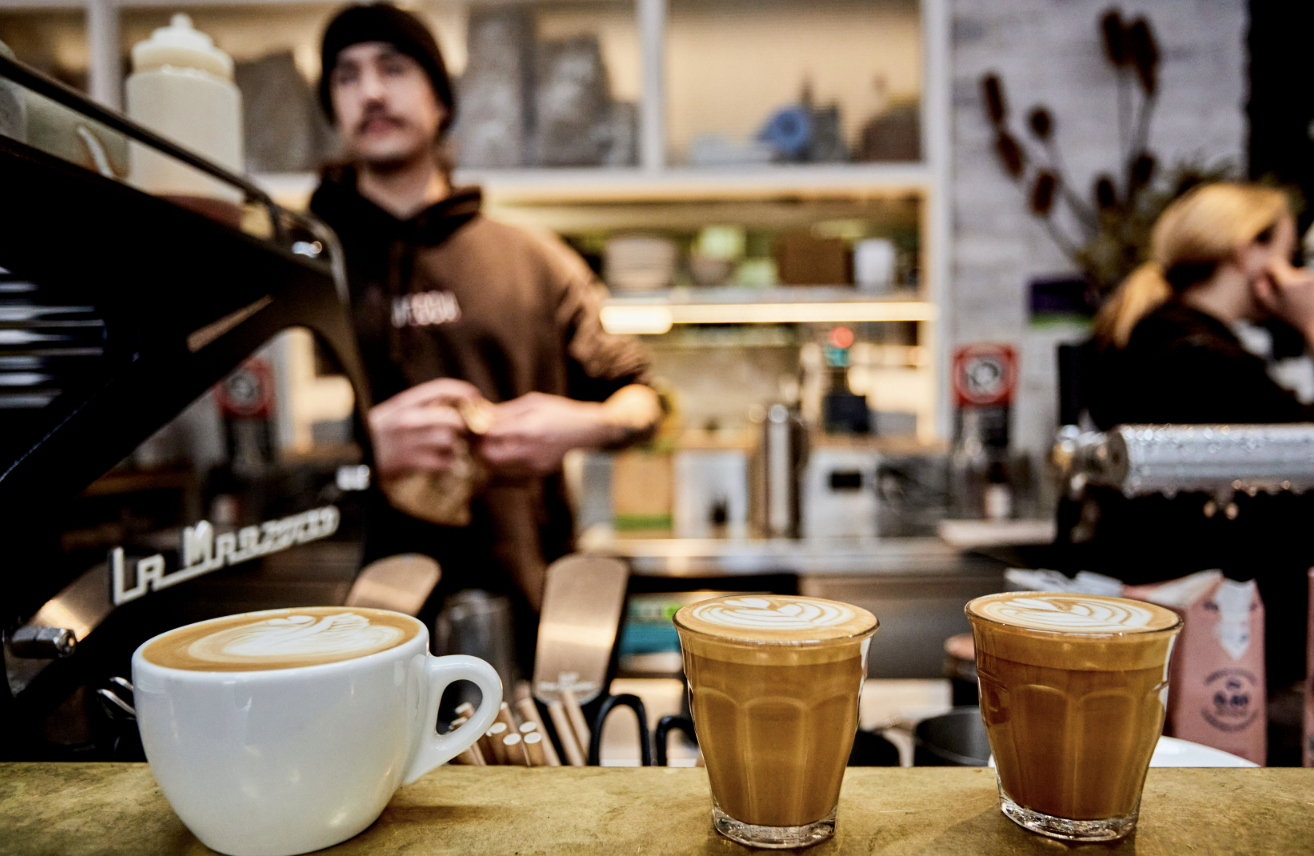
Quality not quantity means a better tasting brew
Quality coffee is what drives Mecca and has made them so successful, but Mecca has always placed a lot of importance on growing techniques.
“It matters that coffee grows in a natural environment, rather than just rows and rows of coffee. When you can see spiders amongst, where coffee is growing to me, that’s a sign of health. And if there’s no chemical fertilisers, and they use byproducts for coffee processing, that’s closed loop farming which allows for biodiversity - animals, trees. It’s not just coffee that's growing - it’s part of an ecosystem.”
Paul explains that these growing techniques mean there’s less yield.
“When coffee isn't fertilised, it has to work hard to take nutrients, so maturation takes longer. However, in some places, certain varieties and growing techniques are mandated by governments because they produce high yields. But what you’ll often see is a correlation between higher yield, and lower quality - particularly if plants are in a stressed environment.”
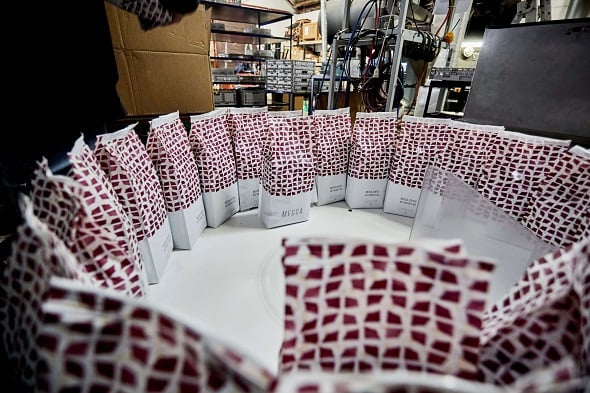
Putting the coffee producer at the forefront
To support sustainable coffee growing, Paul believes that the coffee industry needs to “work harder to decommoditise coffee…and we need to do that by putting the coffee producer at the forefront.”
With that in mind, each bag of Mecca coffee has the producer’s name front and centre. “We made it a key part of our early efforts, to hone in on exporters that were representing farmers or farmer groups who were growing coffee in this way. That’s why you'll see coffees that we've got on our menu that we've been buying for years, like Gachatha, which we’ve been buying since 2008.”
It’s apparent from Paul’s passion and the story of Mecca, that sustainability mattered from the day one.
“This exact venue is what I had in mind 20 years ago. A place where we could roast, we could serve great coffee, we can do all those things. But what it always comes back to is our supply chain.”
Find out more about Mecca here.
Categories
Sustainability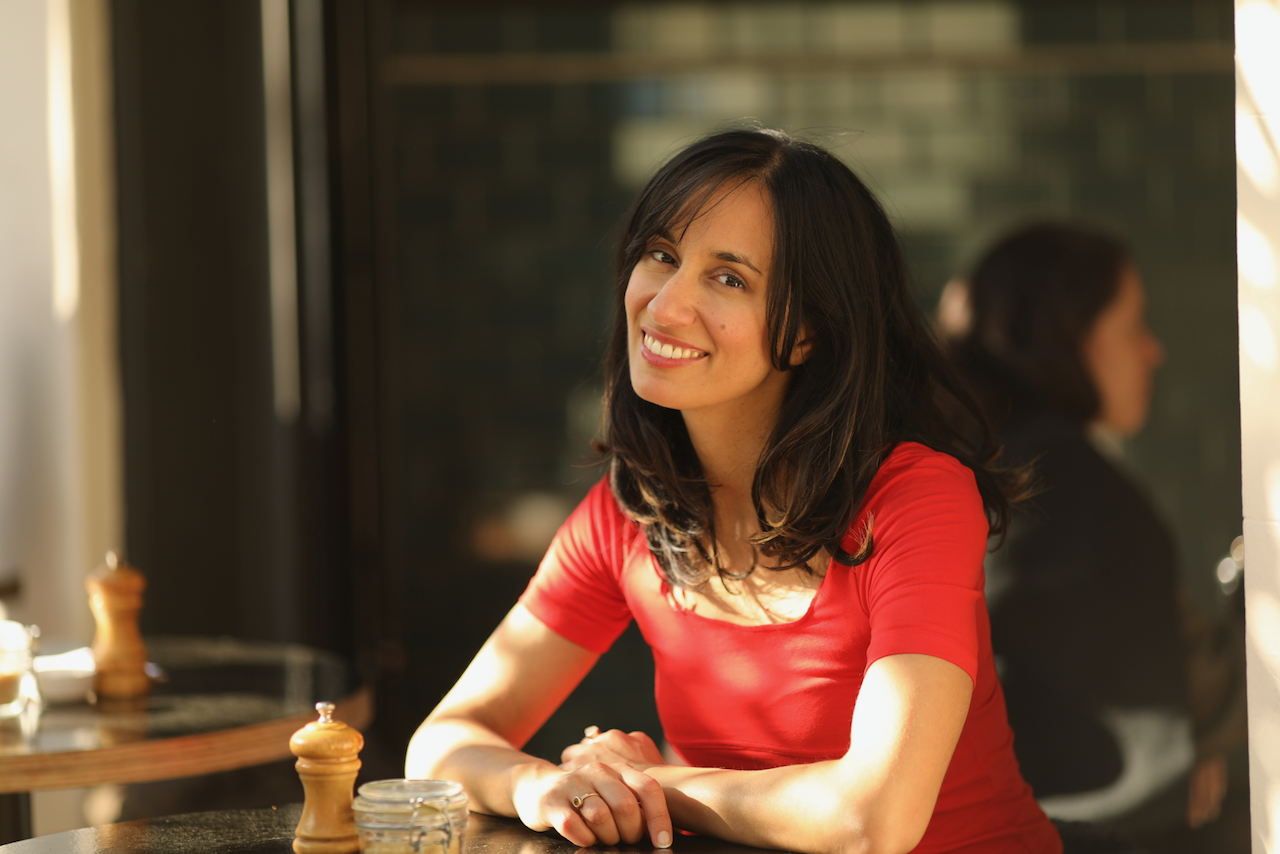
Food lover, restaurant-goer, hospitality appreciator, and writer of content at Ordermentum.







